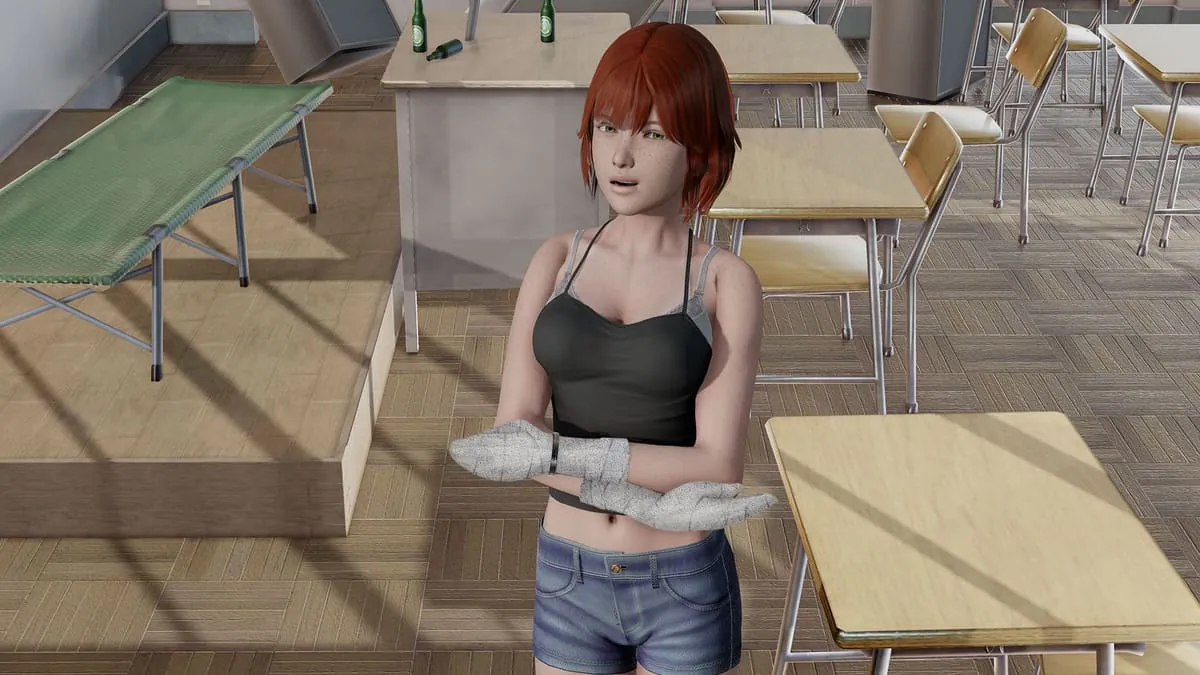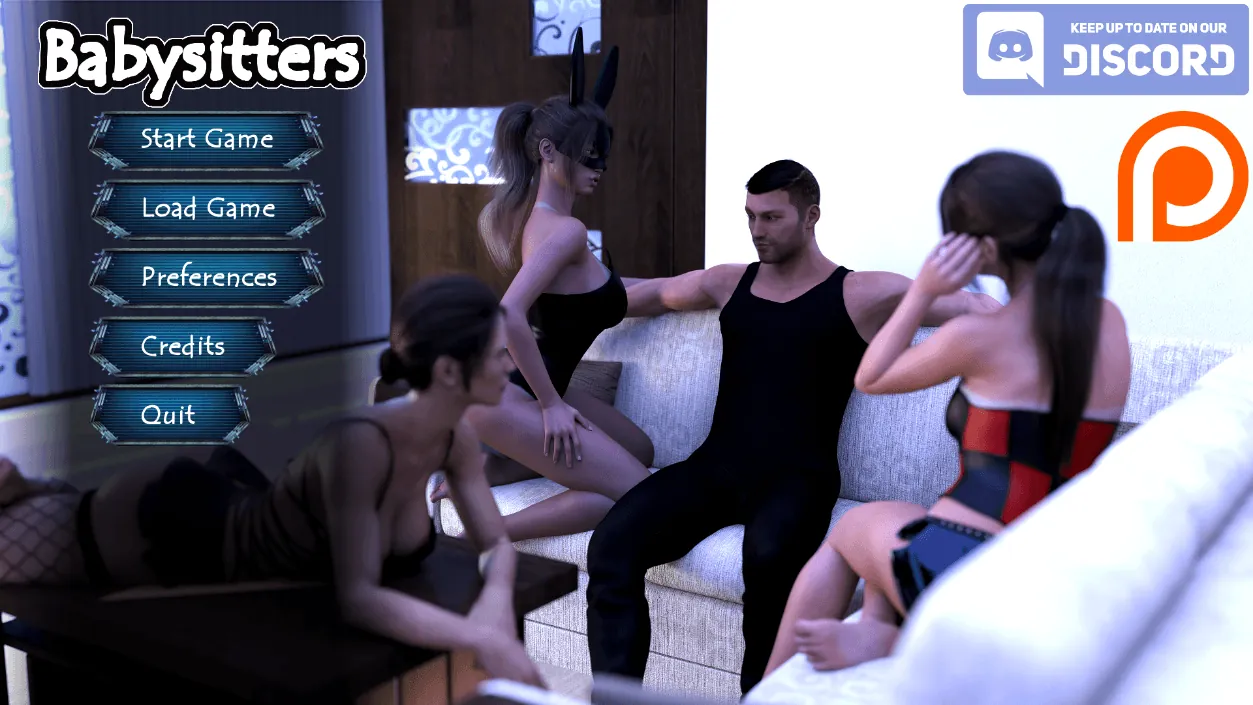
Friends in Need
Play Friends in Need
Friends in Need review
Explore the immersive narrative, character interactions, and decision-making mechanics in this adult interactive experience
Friends in Need stands out as an immersive interactive experience that combines compelling storytelling with meaningful player choice. The game places you in the role of a protagonist who faces the consequences of a devastating financial decision, only to find themselves unexpectedly enriched years later. When your best friend and long-time crush approaches you for help during their own financial crisis, you’re confronted with a pivotal question: will you use your newfound power for good or succumb to darker temptations? This guide explores the game’s intricate narrative structure, character dynamics, and the consequences of your decisions throughout this thought-provoking journey.
Understanding the Game’s Core Narrative and Setting
The Premise: From Financial Ruin to Unexpected Wealth
Let me tell you about a financial mistake so big, it could only happen to someone else… until it happened to me in the Friends in Need game story. 🫣 I remember my first playthrough, staring at the screen as my character, a regular person just trying to get by, saw their life savings vanish due to one terrible, trusting investment. The game doesn’t just tell you about this catastrophe; it makes you feel the weight of it. Your bank account is empty, your landlord is calling, and that pit in your stomach is very, very real. This isn’t just backstory; it’s the emotional bedrock of the entire experience.
This foundational crisis is what makes the sudden turn of events so electrifying. Just when you’ve hit rock bottom, you receive news that changes everything: a massive, unexpected inheritance. 💸 It’s the ultimate “what if” scenario. This windfall isn’t presented as a simple “you win” button. Instead, it becomes the central moral decision making gameplay dilemma. Do you use this money to rebuild your own life and forget the past? Or do you reach out and help the very people your initial financial failure dragged down with you? The game brilliantly uses this wealth as a catalyst, forcing you to confront your own character. Are you a savior, a selfish survivor, or something in between? The power is suddenly in your hands, and it’s terrifying and thrilling in equal measure.
This setup is the engine of the Friends in Need narrative. Your past failure creates a compelling need, and the sudden wealth provides the means to address it, but every path is fraught with emotional and ethical complications. It’s a masterclass in how to build a compelling interactive narrative game from a relatable, human crisis. You’re not just playing a character; you’re navigating the aftermath of a life-altering event and deciding who you will become on the other side of it.
Character Relationships and Emotional Stakes
The true heart of the Friends in Need game story isn’t the money—it’s the people. 🫀 I can’t stress this enough: the connections you form here are what will keep you up at night, thinking about your choices. The game centers on two pivotal relationships: your lifelong best friend and the person you’ve secretly had a crush on for years. Your financial collapse didn’t happen in a vacuum; it created a tidal wave that swamped their lives, too.
Let’s talk about your best friend first. This isn’t some casual acquaintance. This is the person who has been with you through everything. In my second playthrough, I decided to role-play as a more selfish character. Watching the dialogue options become more strained, seeing the hurt in their text messages, and realizing I was sacrificing a decade-long friendship for virtual cash… it felt awful, and that’s a testament to the powerful writing. 😥 The character relationship system tracks every interaction, every promise kept or broken, and every dollar offered or withheld. Your friend isn’t just a quest-giver; they’re a mirror reflecting the consequences of your newfound wealth.
Then there’s your crush. 💘 This is where the Friends in Need character interactions get incredibly nuanced. The dynamic is a tangled web of unspoken feelings, shared misfortune, and the new, uncomfortable power imbalance your wealth creates. Do you become their benefactor, helping them out of their financial hole and hoping gratitude turns into something more? Or do you try to separate romance from money, a nearly impossible task when you hold all the cards? The game explores the uncomfortable truth that money can poison even the purest intentions, and your interactions can lead to a genuine connection or a deeply transactional and resentful relationship.
The emotional stakes are sky-high because the game makes these characters feel real. Their hopes, their disappointments, and their frustrations are palpable. You aren’t just managing resources; you’re managing hearts. ❤️🔥
| Character | Core Relationship | Primary Emotional Conflict |
|---|---|---|
| Best Friend | Lifelong Loyalty & Shared History | Trust vs. Abandonment; Friendship vs. Self-Interest |
| Crush | Unrequited Feelings & Idealization | Genuine Connection vs. Power Dynamics; Love vs. Financial Dependency |
How Your Choices Shape the Story
This is where Friends in Need truly shines as a premier interactive narrative game. If you think your choices in most games are just an illusion, prepare to have your mind blown. 🤯 Every decision, from the seemingly insignificant to the blatantly monumental, sends ripples through the entire narrative. The branching storyline choices aren’t just about picking “Good” or “Evil” from a menu; they are subtle, nuanced, and often force you to choose between two valid but conflicting priorities.
The moral decision making gameplay is seamlessly woven into every interaction. Early on, you might be presented with a simple choice: do you immediately pay off your best friend’s urgent debt, or do you invest the money in a business opportunity that could yield even more help later? Seems straightforward, right? But here’s the thing—the game has a long memory.
Player Tip: There is no “perfect” save file. Embrace the messiness of your decisions. The most rewarding playthroughs are often the ones where you have to live with your mistakes.
Let me give you a concrete example from one of my playthroughs. In Chapter 2, I had the chance to be brutally honest with my crush about why their business idea was failing. I thought I was being “helpful.” I selected the blunt, “truthful” option. 🗣️ Fast forward several chapters, and when I finally decided to confess my deeper feelings, that single past interaction was referenced. The dialogue was colder, more guarded. The game narrative consequences were real: I had damaged the trust needed for that romantic relationship to blossom, and no amount of money could instantly fix it. That’s the power of this game’s design.
The character relationship system is a living, breathing entity. It’s not a simple meter that goes from “Dislike” to “Like.” It’s a complex web of trust, respect, romance, and dependency. Your choices in conversations directly influence which story scenes you unlock, which character paths become available, and ultimately, which ending you receive.
| Your Early-Game Choice | Potential Mid-Game Consequence | Possible End-Game Outcome |
|---|---|---|
| Lie to protect your friend’s feelings | The truth emerges, causing a major crisis of trust | Friend leaves for good, but you avoid immediate conflict |
| Tell the hard truth immediately | Short-term conflict, but foundation of honesty is built | Stronger, more resilient long-term friendship |
| Use money to solve your crush’s problem | They become financially dependent and grateful | A relationship based on obligation, not mutual respect |
| Offer advice and emotional support instead of cash | They struggle but solve the problem themself | A partnership of equals, leading to a healthier romance |
Ultimately, the Friends in Need game story is a powerful exploration of themes we all grapple with: the corrupting influence of wealth, the true meaning of power, and the long-lasting game narrative consequences of our actions. 🎭 It asks difficult questions without providing easy answers. Do you use your wealth to control the narratives of those around you? Or do you empower them to write their own stories, even if it means they might walk away from you?
This interactive narrative game respects you too much to hold your hand. It presents a world of branching storyline choices and then steps back, allowing you to build your own story of redemption, corruption, or something uniquely in between. Every interaction matters, every dollar given or withheld carries meaning, and every ending is a direct reflection of the person you chose to become. Now, it’s your turn to make those choices. What story will you tell? ✍️
Friends in Need delivers a sophisticated interactive experience that goes beyond typical gameplay by weaving together compelling narrative, meaningful player agency, and thought-provoking themes about wealth and morality. The game’s strength lies in its commitment to player choice—every decision you make genuinely impacts character relationships, unlocks different content paths, and shapes the overall story arc. Whether you’re drawn to the complex character dynamics, the branching narrative possibilities, or the moral dilemmas presented throughout the game, Friends in Need offers substantial content that rewards exploration and replay. The ongoing development and regular updates ensure the game continues to evolve, providing fresh experiences for both new and returning players. If you’re interested in narrative-driven experiences where your choices matter and character relationships feel authentic, Friends in Need stands as a compelling choice worth exploring.





























